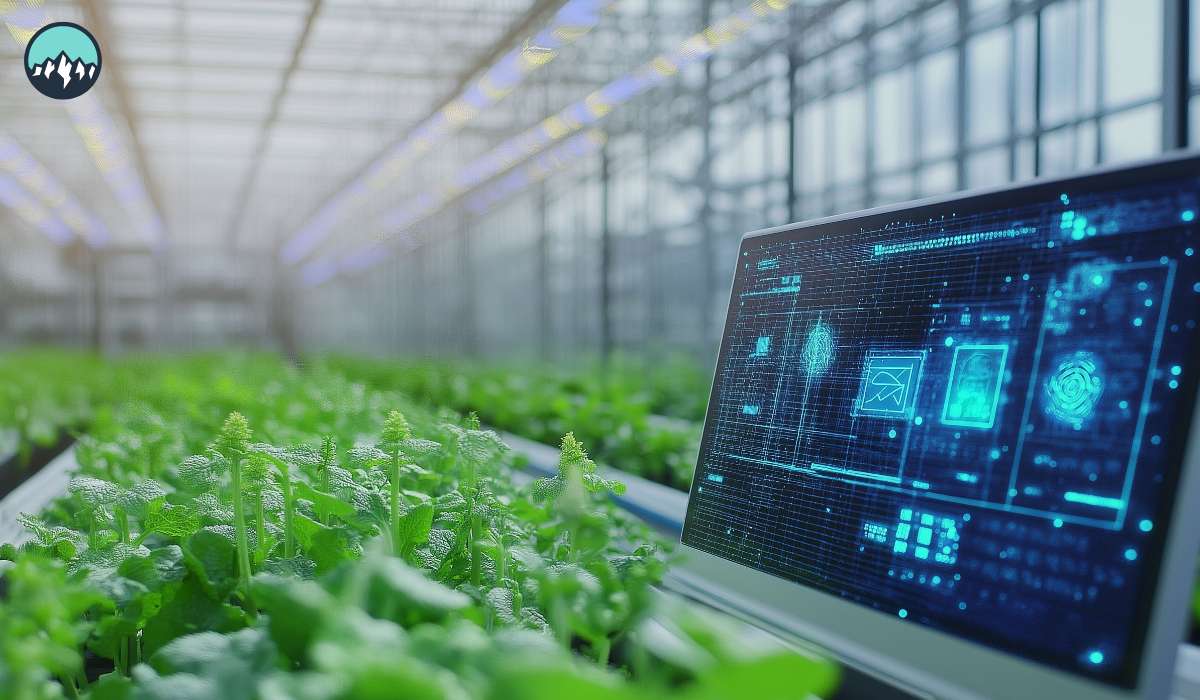Top Agriculture Jobs in Canada
18 Nov 2024

Canadian agriculture pumps over 140 billion CAD annually into the national economy, according to the Canadian government. The sector creates thousands of diverse jobs throughout the country's expansive farmlands and modern agricultural facilities. Job seekers can choose from hands-on fieldwork to high-tech precision farming roles. Your expertise in conventional farming or agricultural technology will help you land positions that match your skills.
Ready to apply your agricultural skills in Canada? Then check out our guide outline of the top agricultural positions available in Canada, covering everything from entry-level farm work to advanced management roles.
Top 5 Agriculture Jobs In Canada

From managing farms to advancing sustainable farming practices, the top five agriculture jobs in Canada offer excellent growth potential and competitive salaries. Here are the top five agriculture jobs in Canada, with National Occupational Classification (NOC) codes and annual average salaries from Canada’s Job Bank.
Farm Manager (NOC 80021)
Farm managers play a critical role in the success of agricultural operations across Canada. They lead farm teams, oversee daily operations, manage resources, and ensure that farms run efficiently. Strong leadership, problem-solving, and organizational skills are essential for this role, as farm managers are responsible for everything from crop planning to staff management. With an annual average salary of 67 176,56 CAD, farm managers enjoy one of the highest-paying roles in Canada's agricultural sector, making this a sought-after career choice.
Agronomist (NOC 21112)
Agronomists are experts in soil health, crop yields, and sustainable farming practices. Their work involves analyzing data, conducting field research, and advising farmers to improve their agricultural practices for better productivity. Agronomists help implement modern techniques and green practices that benefit the environment and farmers' bottom lines.
As the demand for food production grows and sustainable farming becomes increasingly essential, agronomists can expect an annual average salary of 97 637,89 CAD annually, reflecting the critical nature of their expertise in today's agriculture industry.
Agricultural Equipment Technician (NOC 72401)
Agricultural equipment technicians maintain and repair the complex machinery that drives modern farming operations. With technological advancements in farming equipment, these technicians need mechanical skills and a deep understanding of modern agricultural technology.
They ensure that machinery is in good working condition, reducing downtime and helping farms operate efficiently. Technicians in this field earn a competitive annual average salary of 96 086,84 CAD in Canada, reflecting the specialized nature of their work and the importance of machinery in Canada's agricultural sector.
Agricultural Scientist (NOC 21110)
Agricultural scientists are pivotal in addressing global challenges like climate change and food insecurity. They conduct vital research to develop innovative solutions that improve farming methods, enhance crop resilience, and increase food production.
Areas of focus for agricultural scientists include plant genetics, soil science, pest control, and sustainable agricultural practices. As the need for environmentally friendly farming techniques grows, agricultural scientists are highly valued, and their work is critical to ensuring food security for future generations. Agricultural scientists in Canada can earn an annual average salary of 109 812,76 CAD.
Horticulturist (NOC 22114)
Horticulturists in Canada specialize in plant cultivation, working with crops such as fruits, vegetables, and ornamental plants. They apply scientific knowledge to enhance plant growth, improve yields, and promote sustainable practices. As Canada increasingly emphasizes food security and green production, horticulturists are in high demand to help optimize agricultural productivity.
The annual average salary for horticulturists in Canada is 71,372.16 CAD, with the potential for growth as their expertise becomes even more critical in the face of environmental challenges and increasing demand for locally-grown food.
Career Advancement Pathways

Canadian agriculture's career paths offer reliable advancement opportunities. Clear pathways exist to progress from entry-level positions to senior roles. Understanding these advancement routes can help you plan your career trajectory better.
From Field Work to Management
Agricultural careers in Canada start with hands-on fieldwork and lead to management positions. Experience combined with training helps professionals advance from operational roles to supervisory positions. Farm management or agricultural business leadership positions await skilled professionals. The Canadian Agricultural Human Resource Council (CAHRC) notes that management positions can offer 40-60% higher compensation than entry-level roles.
Specialization Opportunities
Canada's agricultural sector offers several specialization areas as you gain experience:
- Technical Services and Research,
- Agricultural Technology Implementation,
- Market Analysis and Trade,
- Eco-friendly Farming Practices, and
- Agricultural Policy Development.
Professional Development Resources
Canadian agriculture offers multiple professional development paths to accelerate your growth. The AgriSkills Program provides detailed training through:
- Workshops and webinars,
- E-learning modules,
- On-the-job training opportunities, and
- Management skill development.
The Women in Agriculture Essential Leadership Skills Development Program helps female professionals develop vital leadership capabilities. This 10-week program needs two years of industry experience. It combines online learning with practical exercises effectively.
Microcredentials offer focused, specialized certifications that the industry recognizes widely. These credentials need 70% attendance in live sessions and are a great way to get recognition for your expertise in specific agricultural domains. The evolving agricultural sector demands continuous learning. Your advancement opportunities in Canada's growing agricultural industry improve significantly when you stay current with industry developments and pursue relevant certifications.
Technology and Innovation Roles
Canadian agriculture is experiencing a tech revolution, creating exciting new careers combining traditional farming wisdom with innovative technology. These roles shape the future of farming across the country.
AgTech Specialist Positions
A career as an AgTech specialist in Canada lets you work with modern vertical farming facilities and eco-friendly agriculture technologies. You can earn $50,000-$60,000 yearly, with higher earnings as your expertise grows. The role connects traditional farming methods with modern tech to change how food moves from farms to plates. Your main tasks will be to:
- Run automated growing systems,
- Apply eco-friendly farming solutions,
- Create new agricultural technologies, and
- Use tech to maximize crop yields.
Data Analytics in Agriculture
Canada's growing AgTech sector needs data analysts. Starting at $31 per hour, you'll study farming data to boost yields and make operations more efficient. The job involves using advanced tools like Power BI and specialized farming databases to turn raw numbers into practical insights for modern farms.
Precision Farming Careers
Precision farming will lead the future of agriculture in Canada by mixing GPS technology, automated systems, and evidence-based decisions. As a specialist, you will handle advanced equipment and platforms like John Deere's Operations Center and RTK GPS leveling systems. These roles pay well, with salaries between 70 395,27 CAD - 98 552,68 CAD yearly.
Your work will focus on running precision farming tech that boosts crop yields while staying eco-friendly. You'll manage cloud software, handle geo-referenced data, and improve farming operations through tech solutions. Canadian farms welcome digital changes and eco-friendly practices, so these jobs keep growing.
Building a Successful Agricultural Career

A successful career in Canadian agriculture takes more than technical knowledge - you just need strategic networking, continuous learning, and proper credentials. This piece will help you establish yourself in this ever-changing sector.
Networking in the Agriculture Industry
Canada’s agricultural sector now thrives on digital networking with a robust online community for professionals. Agricultural social media platforms and virtual events have become vital networking tools for jobs in Canada's agricultural sector.
Virtual conferences and online trade shows give you excellent chances to connect with industry leaders and potential employers. These digital platforms let you search for specific expertise or interests, which makes networking more targeted and effective in the Canadian work culture.
Continuing Education Options
Your learning trip in agriculture extends beyond formal schooling. You can boost your expertise through several specialized programs:
- Agricultural Sales and Customer Support (10-month online program),
- Integrated Crop Management (11-week certification),
- Smart Agriculture Certificate - Agronomy Stream, and
- Perennial Forage Agronomy for Retail.
These programs fit into your busy schedule. They need only 3-5 hours per week, and you can complete them at your own pace. Many courses offer flexible online learning options that help you balance education with your current work.
Industry Certifications and Credentials
The proper certifications can advance your career opportunities in Canada's agricultural sector. The TCO Certification proves especially valuable and covers various specializations, including:
- Farm certification,
- Complex processing,
- Livestock management, and
- Dairy production.
These credentials are nationally confirmed and recognized across Canada, substantially improving your job prospects. The CAHRC expects over 50,000 agriculture and food jobs will need workers in the coming years, making proper certification more valuable.
Note that the right mix of networking, education and certifications can open doors to many opportunities in Canada's growing agricultural sector. Whether you lean toward traditional farming or modern AgTech roles, your path to success lies ahead. These elements are the foundations of a rewarding career path.
FAQs
What Are The Highest-Paying Careers in the Agricultural Sector?
Some of the top-paying positions in agriculture include Agricultural Specialist, Water Treatment Specialist, Food Technologist, Environmental Scientist, Water Resources Engineer, Operations Manager, Ecologist, and Agronomy Manager.
What Are the Five Leading Agricultural Industries in Canada?
The primary agricultural sectors in Canada are grains and oilseeds, accounting for 34% of the industry; red meats and livestock at 24%; dairy products at 12%; horticulture at 9%; and poultry and eggs at 8%.
What is the Typical Salary Range for Agriculture Jobs in Canada?
The average salary for agricultural jobs in Canada is approximately 83,978.14 CAD per year or 43,06 CAD per hour. Entry-level positions typically start at 61,403.18 CAD per year, with salaries for experienced workers reaching up to 143,021.09 CAD annually.




